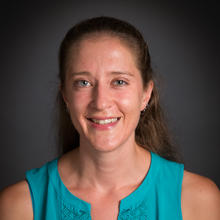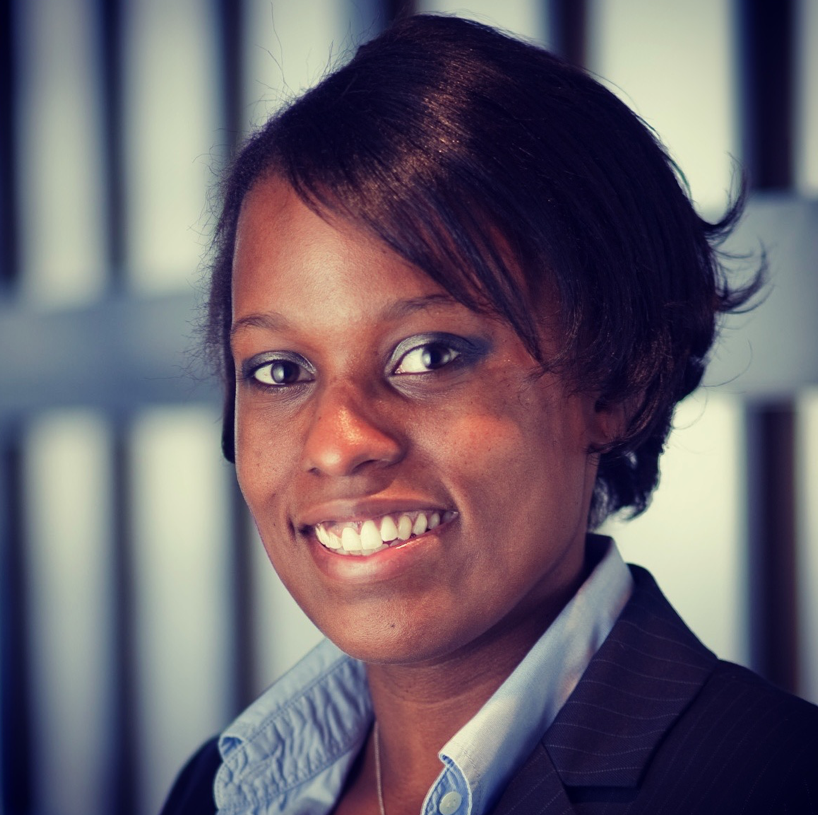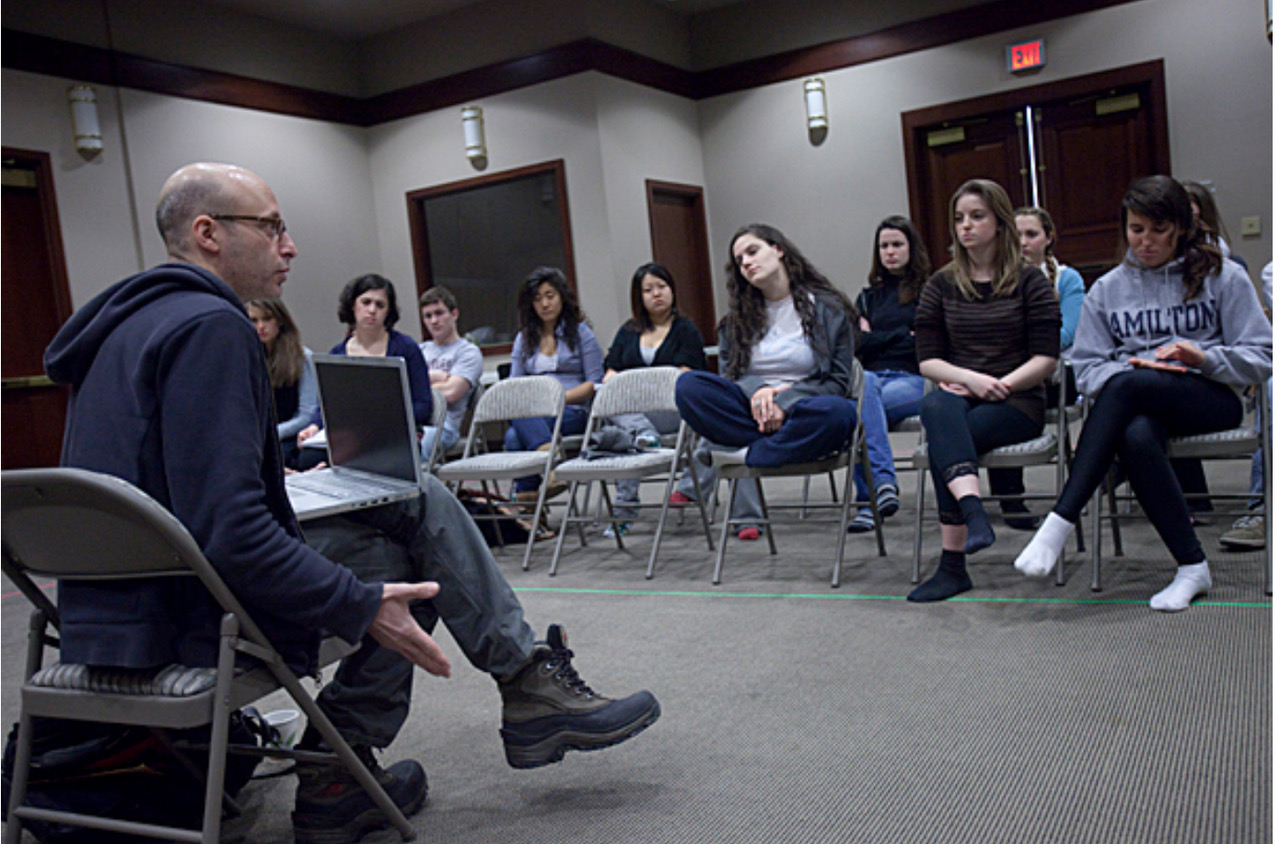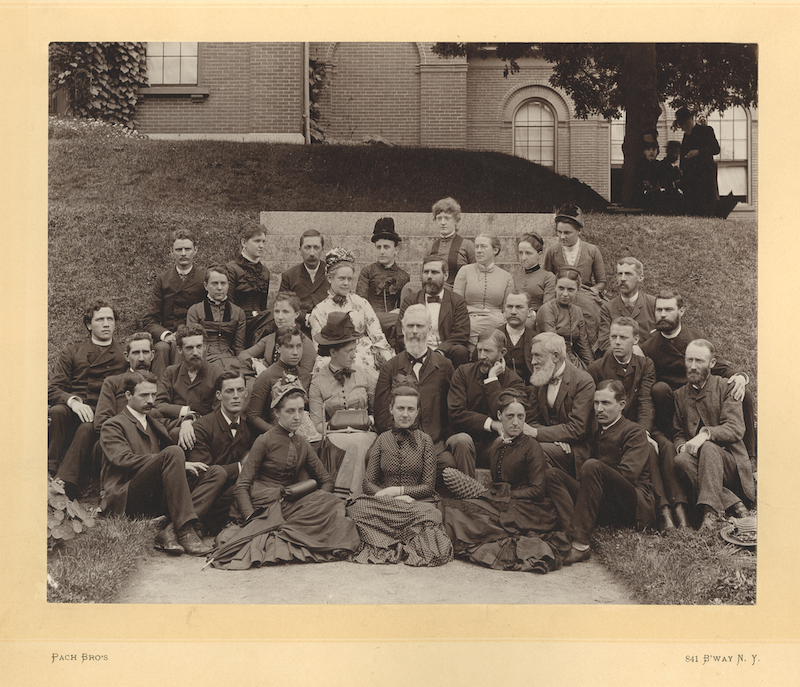On this page
With the first wave of COVID-19 well underway in April 2020, the decision to make Harvard Summer School a virtual experience was disappointing for many, but not particularly surprising.
The decision did, however, present an enormous challenge: How to adapt over 200 summer classes into a fully on-line format without sacrificing academic rigor and a quality student experience, in less than three months.
Despite the enormity of the challenge, student feedback about the Summer School experience was overwhelmingly positive.
A large part of that success must be credited to the many instructors who transformed in-person courses to interactive online experiences seemingly overnight.
We talked with three instructors about the creative ways they transformed their courses, the steps they took to engage their students in the virtual world, and the lessons they learned from their online experience in 2020.
Casey Roehrig Turns Intro to Biology into an Interactive Online Course

Casey Roehrig’s goal is to help her summer students become fluent in the language of biology and understand how biologists learn about the world around them.
Her biology course offers an introduction to evolutionary and organismal biology, with a focus on body systems and basic physiological processes. In previous summers, Roehrig has spent much of her time at the front of a large lecture hall, keeping her 80+ students engaged by mixing small group activities into her lectures.
Facing the prospect of keeping students engaged over Zoom, Roehrig decided she really needed to think outside the box.
“I decided to flip my classroom completely.” Roehrig said.
Roehrig took the unique approach of dividing her class into two shorter sessions with only 40 students each. She pre-recorded short lectures for students to watch in advance.
Class time was devoted entirely to interactive activities and small group discussions.
“This format allowed more students to speak. When they came back from a group activity, we would ask the students to report out what they had discussed. It gave twice as many students the opportunity to talk in class,” Roehrig said.
Overall, she said, students really enjoyed the interactive nature of the course. And they brought their own ingenuity and creativity to the class as well.
“We did have some students who got very creative,” Roehrig said. When the at-home dissection kits she ordered didn’t arrive as expected, for example, some students took matters into their own hands.
“They procured animal hearts from their local butcher. Normally, we would dissect a calf heart, which is about the size of a fist. But they were getting hearts from adult cows, which were about the size of your head. The students shared their dissection of these gigantic hearts with their lab sections so everybody could see it. It ended up working out surprisingly well,” Roehrig explained.
Roehrig credited much of the course’s success to the support and flexibility of the SSP administration and the educational technologists at Harvard Extension School.
But most of the credit, she said, goes to her team of teaching fellows.
“They took a very unusual situation and made it a very good learning experience for the students,” Roehrig noted. “I could not teach the course without them. Being able to brainstorm with other people and get ideas from all sorts of different areas—from the educational technologist to the subject matter expert, from the TFs to the administration—is really important for making it all work together.”
Tiffany Nichols Shifts Focus to Current Events in Intro to Criminal Law

Going fully online presented Tiffany Nichols with a conundrum of sorts.
When in-person, her two summer classes, Intro to Criminal Law and Start-ups from the Perspective of Business and Intellectual Property Law, focused on black letter law (i.e. statutes and judicial decisions) paralleling first year law school courses.
In order to help students stay fully engaged while online, Nichols wanted to connect the theory with current events.
“I really changed the class in order to put it really into a societal and historical context.” Nichols said. “With everything going on in society today, it would have been weird to not acknowledge the racial inequalities within law enforcement. So I overhauled the curriculum in a way that required the class to think outwardly, toward today’s society.”
But in order to discuss potentially difficult topics, Nichols had to create a safe environment—online—where students would feel comfortable participating in these tough discussions.
“These things are very hard to talk about, especially if you don’t know who your classmates are.” Nichols noted. “So that was another reason why I had to build a community of trust early on in the class.”
Nichols admitted that figuring out how to create online icebreakers that would enable her students to connect to one another was one of her biggest challenges.
“I built in a lot of group activities that allowed them to get to know each other and that varied the pace of the course during each three-hour session,” Nichols said.
She also sought to structure the class and the homework assignments in such a way as to allow students extra time to process difficult material before discussing them in class.
For example, Nichols utilized the free streaming access to Ava Duvernay’s compelling mini series, When They See Us. In an in-person class, there would not have been enough time to watch a series like this. But this summer, Nichols incorporated the series into the homework. This context provided the students with the context and stakes of criminal proceedings. The students then built this additional understanding into their moot court cases.
“Adding this extra hour of homework was tough (and extra work for the students), but it allowed students to deal with difficult issues on their own terms beforehand, so that discussing them in class was less traumatic,” Nichols said. When they arrived in class, the students not only were able to better situate black letter law within its social context, they were able to develop solutions and approaches to the law to address such inequalities.
Nichols was impressed with how well her students responded to both the topic and to each other.
“They were super, super, super motivated,” Nichols said. “All of my students were very shocked that three hours had gone by, so that’s how I knew this was working.”
Marcus Stern’s Drama Course, Intro to Directing, Turns to Personal Stories
Marcus Stern has been teaching introduction to theater directing for over 20 years.

“I was really scared,” Stern said when asked about his initial reaction to taking his course online. “My first thought was that I wouldn’t be able to figure out how to translate the class so that it worked online. What was nice about having to figure it out was that it forced me to reassess and consolidate what I thought the core elements of the class were, so I could focus on translating those into this new format.”
The outcome of the online course was beyond anything he expected.
Instead of focusing on live theater as in previous years, Stern and his co-instructor, Annabeth Lucas, asked students to create a short film each week, with an emphasis on personal storytelling.
He and Lucas devoted the class time both to directorial skill building and to reviewing the films made by the students, encouraging group discussions focused on feedback and constructive criticism.
Stern said he was surprised at the extra level of effort each student put into the assignments, and attributed it to the investment in these personal stories. He was also surprised and enjoyed seeing households come together to help.
“It was wonderful to see parents acting for their kids, being so good at it, and so loving about it,” he said. “Watching these films, you just got a sense of great love and support that these parents were giving to their kids.”
Yet it was the emphasis on personal storytelling that shocked—and pleased—Stern the most.
“Instead of using existing scripts, everybody wrote their own this summer. [Creating these films] offered a chance to ponder personal stuff that they were navigating inside, because of this pandemic. The students seemed fueled and energized to build skills quickly in order to tell the story that felt important to them. I found it really profound.” Stern said.
Moreover, the personal storytelling created an intense feeling of community and even intimacy among the students.
“Seeing each other’s personal stories helped with a sense of community,” Stern said. And seeing classmates’ personal stories encouraged the others to open up themselves.
“The stories got more and more intimate,” Stern noted. “I think because they felt safer with each other as they witnessed other people sharing personal stories. Even students who stayed away from personal storytelling initially, moved closer toward more personal sharing than they would have in a live format where more students normally do pre-existing scripts rather than writing their own stories.”
After his initial skepticism about bringing the class online, Stern now says that he hopes to bring some of these elements from the online class—especially the focus on having all students writing their own stories—back into the classroom when in-person classes resume.
“That extra sense of personal sharing that came from writing their own stories, I want to carry that over to the live version, if…when..we return to the live classroom.”

